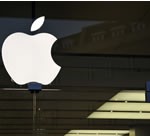
Advocates for open-license textbooks in higher education, while largely unhappy with Apple’s new iBooks 2 platform, say the technology behemoth has done a favor for their movement: Apple’s pricey, limiting approach to digital textbooks is in stark contrast to the textbook model that aims for low-cost or free college texts.
iBooks 2, announced to great fanfare during a flashy Jan. 19 press conference in New York City, offers iBooks Author software that enables instructors and others to create and publish their own interactive digital textbooks in the Apple iBooks Bookstore. Some campus technology leaders hailed the new iBooks platform as a revolution in digital publishing.
Others took a close look at the iBooks 2 licensing agreement’s fine print and called it “crazy evil,” “mind-bogglingly greedy,” and “deliberate sabotage” of the open, industry-leading standard known as EPUB.
Since 2010, Apple has publicly supported the popular EPUB standard, bringing hope to many in higher education that the company would someday abide by those open standards that could lower skyrocketing book costs.
But iBooks 2 and the iBooks Author software “locks out” that standard, Ed Bott, a technology writer and expert on license agreements, wrote in his blog.
Apple chose a closed system in which the company controls the creation and distribution of textbooks—which will start at $14.99 for K-12 textbooks—that directly undercuts the slow but steady effort to expand low-cost textbooks that can be accessed on any device, not just iPads.
“It is underscoring the difference between the two approaches, only one of which encourages the education community to rally around a set of principles,” said Eric Frank, co-founder and president of Flat World Knowledge, an open textbook publishing company. “It really shows that there is a different future for textbooks and illustrates the problems with the other model, the closed approach.”
Open-license textbook proponents said iBooks 2 follows the same successful approach taken by the company in its ubiquitous iTunes model.
It hasn’t shocked many who have followed the company’s business tactics.
“It’s not surprising, given the way Apple behaves with apps and other kinds of content,” said Nicole Allen, an open textbook activist for the Student Public Interest Research Groups (PIRGs), which pushed for open textbook use at campuses nationwide last fall. “We need to keep in mind that they are a company that exists to make money. They set up [iBooks 2] this way to maximize profits. … Apple entering the textbook market doesn’t mean anything will be solved.”
Small private colleges and universities that haven’t experienced the budgetary stagnation of most campuses might be able to supplement large-scale Apple iPad purchases for students, but the digital books made available in the iBooks Bookstore will remain off-limits to most college students, Frank said.
“Apple has always said they prefer a closed system over one that might compromise the user experience by using something more open,” he said. “When you’re talking about [iTunes] and music, that’s OK, but in education, the argument falls apart. … No one wants to limit access to educational materials.”
Bott wrote shortly after Apple’s iBooks 2 unveiling that the program’s license could lead to a “nightmare scenario” for textbook authors: After writing a textbook and submitting it to Apple, the company rejects it, which—under the company’s agreement—means the author cannot sell the book for profit.
“Under this license agreement, you are out of luck,” Bott wrote. “They won’t sell it, and you can’t legally sell it elsewhere.”
John Gruber, a blogger who tracks Apple’s announcements and business strategies on the site Daring Fireball, dubbed the iBooks 2 license agreement “Apple at its worst” because of its stipulations for those who create content and have it rejected by the company.
“Apple … is claiming a right not just to its software, but to its software’s output,” Gruber wrote. “It’s akin to Microsoft trying to restrict what people can do with Word documents, or Adobe declaring that if you use Photoshop to export a JPEG, you can’t freely sell it to Getty. As far as I know, in the consumer software industry, this practice is unprecedented.”
Allen from Student PIRGs said Apple could have helped the open textbook movement move closer to higher education’s mainstream. The company’s myriad licensing restrictions, however, only presented a commercial alternative to a nationwide effort to bring high-quality textbooks to college students for less than the current $1,000 per year.
“It brings to mind the quote, ‘Man is born free, and everywhere he is in chains,’” Allen said. “The only thing I can hope is that this is the first step—and [iBooks 2] will go through many iterations before it’s finalized.”
- Research: Social media has negative impact on academic performance - April 2, 2020
- Number 1: Social media has negative impact on academic performance - December 31, 2014
- 6 reasons campus networks must change - September 30, 2014
Comments are closed.